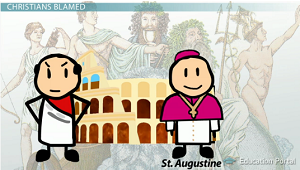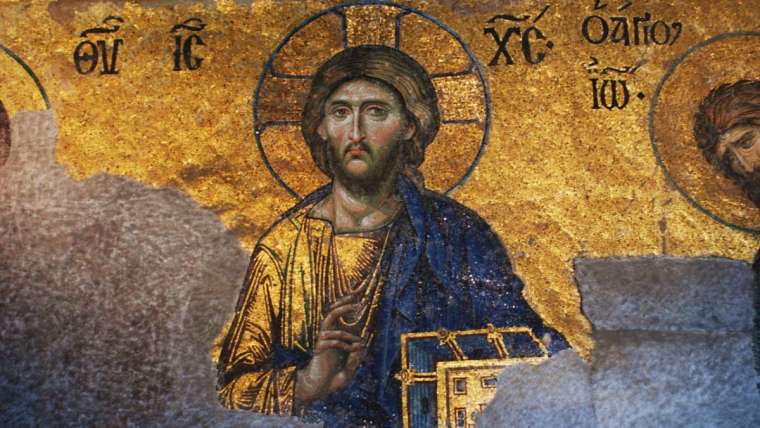St Augustine City of God
St Augustine City Background
St Augustine City of God Throughout time, there have been pieces of writing that captured the hearts and minds of generations. There’s Gone with the Wind, The Grapes of Wrath, and perhaps most famous, the Bible. Today, we’ll be discussing a famous work that in many ways has come to be a companion read to the Bible. It’s known as The City of God. Although this work isn’t found in most households or lining most bookstore walls, its content molded modern Christianity, and its author, St. Augustine of Hippo, is revered as one of the preeminent sculptors of modern-day Christianity.
Because the work is so complex, we could take days studying The St Augustine City of God, a work that flew in the face of the Greek philosophies of men like Plato and the pagan philosophers of Rome. In order to condense these vast writings, we’re going to break it down into his three main points. First, Augustine wrote The City of God to refute the Romans who blamed the Christians for Rome’s troubles. Second, Augustine wanted people to know that internal peace could be found here on Earth. Third, Augustine wanted people to know that hell is real.
Before we jump into his works, let’s take a look at St. Augustine. Born in 354 CE in a Roman North African province, Augustine was an educated and well-traveled man, spending time in places like Africa, Carthage, and Italy. Although he wasn’t always the most upstanding of gents (for example, he had some real issues with promiscuity and mistresses), Augustine is heralded as one of the most influential figures in Christianity, an influence that really began to take shape around the year 386 CE.
Tradition tells us it was in this year that Augustine heard a voice telling him to read the Bible. Upon picking up his Bible, it fell open to the book of Romans, which reads, Let us behave decently, as in the daytime, not in carousing and drunkenness, not in sexual immorality and debauchery, not in dissension and jealousy. With this, his heart was convicted and changed.
Christians Blamed
After his conversion and baptism, Augustine moved back to North Africa to become a preacher. Around 395 CE, he became the Bishop of the Algerian region of Hippo Regius, hence his name, St. Augustine of Hippo. As bishop, Augustine sought to guide his people through a turbulent time in Roman history, a time when the empire was being invaded and destroyed by a Germanic tribe known as the Visigoths. When Rome was captured in the year 410 CE by the Germanic king, Alaric I, the future of the empire was bleak. Looking for someone to blame for their woes, many Romans turned to the Christian faith, saying it was their fault that the empire was in such turmoil.
Wanting to refute such claims, Augustine picked up his quill (or pen) and began The City of God sometime around 413 CE. With this, we come to our first main point: Augustine hoped to silence Romans blaming the Christians for the fall of their empire.
| St. Augustine’s City of God refuted the belief that Christians caused the gods to abandon Rome. |
As Rome was ransacked and its people brutally murdered and raped, the rest of the empire was left wondering how the Eternal City of Rome could have fallen. Needing some way to make sense of it, they blamed the Christians, their argument being that the gods of Rome had abandoned the empire because the Christian monotheists, or worshipers of only one god, had insulted them by refusing to pay them homage. Being ticked off, the gods had allowed the Visigoths to destroy the city.
Completely disagreeing, Augustine used The City of God to lay out a logical refutation of this argument. First, he reminded the people that bad things happen to everyone. Next, he gave a list of horrible things, like plagues, that happened while almost all of Rome actively worshiped the old gods and Christianity wasn’t even on the scene. Simply put, he asked, ‘Where were your gods then?’ He then took the gloves off by stating Rome fell because it was spiritually corrupt and morally bankrupt. The Christians had nothing to do with it.
Peace is Possible
Once he dealt with all the blamers, Augustine got to our second point: Peace can be acquired here on Earth by those who choose the city of God, over the city of man.
Concerning peace, Augustine explains there are two cities, one that is temporal, called the City of the World, and one that is eternal, the City of God. In his writings, the City of the World represents the natural, sinful world (for example, Rome). By doing this, he encouraged his fellow Christians that Rome was never their true city. On the contrary, heaven is their true home and it alone will last. It will never be conquered. With this truth, he told his fellow believers that peace could be experienced on Earth by those who follow the guidelines of the Holy Scriptures. This is the highest good.
Hell is Real
With the blamers dealt with, and how to acquire peace explained, Augustine moved on to the last point, eternal punishment is real and waiting for those who belong to the City of the World. Obviously, this one didn’t make him a crowd favorite, but it does give us our last point. Augustine told the people of his age that the judgment described in the Holy Scriptures is true. He wholeheartedly believed the words of the Bible, which read:
If this is so, then the Lord knows how to rescue the godly from trials and to hold the unrighteous for punishment on the day of judgment. This is especially true of those who follow the corrupt desires of the flesh and despise authority.
Taking it a step further, Augustine encouraged his audience to live as citizens of the City of God, for not only will they escape judgment, they will be welcomed into heaven, a place of eternal rest and happiness with God. Hmm, I’m thinking that sounds like a much better option.
Lesson Summary
St. Augustine was an educated bishop who wrote during a tumultuous time in the Roman Empire. As Rome was being pillaged by foreign invaders, many were looking for someone to blame. They found their scapegoat in the monotheistic believers of the Christian church. In order to refute such claims, Augustine wrote The City of God.
Although these writings are vast, we can highlight three of their main points. First, the Christians were not to blame for the sacking of Rome. Rome, like everyone else, just had problems. Second, internal peace can be had by those who follow the guidelines set out in scripture. And, last by not least, hell is real and waiting for those who choose the City of the World over the City of God.
Source: https://study.com/academy/lesson/st-augustines-city-of-god.html



